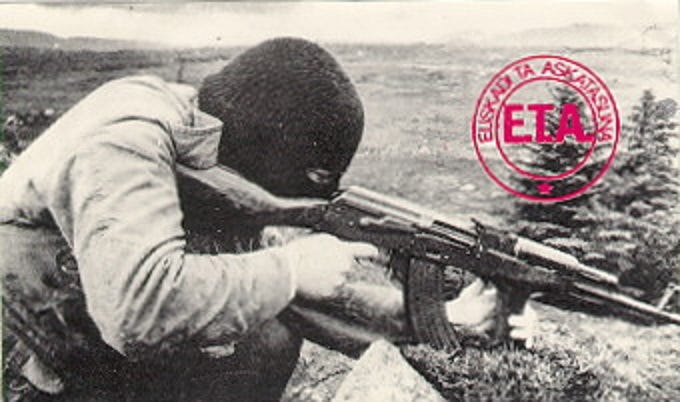On May 13th, the Biden Administration made the decision to remove five groups that are currently listed as FTOs (Foreign Terrorist Organization) from the blacklist. This decision was officially announced a week later by the State Department.
Should this raise security concerns among analysts? Probably not. However, it does pose the question of how often the blacklist is reviewed or updated and raises concerns regarding the criteria that is currently being used to update or maintain the list.
Which groups did the Biden Administration decide to delist? These include the Euskadi Ta Askatasuna (ETA) Basque separatist group, Japanese cult Aum Shinrikyo, Jewish radical group Kahane Chai (Kach), Sunni Islamists, Gama’a al-Islamiyya, based in Egypt, and the al-Qaeda-linked Salafi Jihadi organization, Mujahidin Shura Council in the Environs of Jerusalem, who operates on the Sinai Peninsula and Gaza Strip. Although these organizations will be delisted as FTO, they will retain their status as an SDGT (Specially Designated Global Terrorist) under Executive Order 13224.
This is where details become relevant. Most reporting indicates that the Basque separatists have not taken up arms against Spain for more than a decade. Additional reporting suggests that the group formally disbanded in 2018 effectively ending the longest insurgency that was operating in Western Europe.
Aum Shinrikyo was a Japanese doomsday cult which gained notoriety for a March 1995 terrorist attack that employed the release of sarin gas into the Tokyo subway system. Thirteen commuters were killed in the attack, and 54 others were injured with another 980 people suffering symptoms as well. However, this was not the first time the group had used sarin. In June 1994 the group also released sarin while amid a dispute with local authorities in Matsumoto, Nagano Prefecture. Eight people perished in this attack. The group has split into two groups since the execution of its founder and leader Shoko Asahara in 2018. These entities are known as Aleph and Hikari no Wa (The Circle of Rainbow Light.)
Kahane Chai is a movement within the state of Israel. It was an offshoot of the group Kach that was founded by ultraorthodox American Israeli Rabbi Meir Kahane. In 1994, both entities were declared to be terrorist organizations by the Israeli Cabinet under the 1948 Terrorism Law. There are some concerns, however, that although the group is dormant, members of the group active in both Israel and the United States could have formed smaller cells in order to carry on their activities.
Gama’a al-Islamayya is an Egyptian group that was designated as an FTO back in 1997. It gained notoriety in 1993 for the preaching of its spiritual leader Omar Abdel-Rahman’s role in the attack on the World Trade Center that occurred that year. The Biden administration considers this group to be dormant as well. In 2011, the group formed the Building and Development Party which won 13 seats in Egypt’s parliamentary elections that same year. The party did not last long. In 2020, the Supreme Administrative Court in Egypt accepted a request by the Political Parties Affairs Committee to dissolve the party and liquidate its assets over its links to terrorist groups.
Mujahidin Shura Council in the Environs of Jerusalem, (MSC) was designated as an FTO in August 2014. Most reports indicate that the group formed in 2012 after several Salafist groups in both the Sinai Peninsula and the Gaza Strip merged. The group has also claimed responsibility for several rocket attacks against Israel during its history. The move is likely to displease the Israeli security services. It comes at a time when militant activity in Egypt is still raging. Earlier on May 11th, Egyptian troops were killed repelling an attack against a water pumping station east of the Suez Canal. Within a matter of days, five more Egyptian soldiers were killed in an attack by militants. To say that Cairo is not pleased by this move may be an understatement since the security situation in the Sinai remains a major concern for the government of Abdel Fattah el-Sisi.
Without a shadow of a doubt, there have been some changes in the internal dynamics of the groups that were delisted by the State Department. Some have shifted strategies; others have devolved into smaller entities or even stopped having the government surveilling them. However, there are ample reasons for concern as to the decisions to delist the groups that are currently operating in both the Sinai and Gaza Strip.
If these removals from the FTO blacklist are indeed political decisions such as those made regarding the groups based in the Middle East, then what exactly is the strategy of the Biden Administration? Is this a cynical ploy for a regional peace deal? Could the delisting of Kahane Chai or even MSC be designed to pressure Israel into renewing talks with the Palestinians? The Biden Administration has sought new opportunities to bring these parties to the table. This is a very cynical view of current US diplomacy. There were additional concerns that the IRGC (Iranian Revolutionary Guard Corps) would be delisted as an FTO. The EU did suggest this as a way to save the Iranian Nuclear Deal. However, this action was not taken by the Biden Administration. We will not have a specific answer until the memoirs are written. But these particular delistings will be scrutinized more than other recent delistings by Washington.





